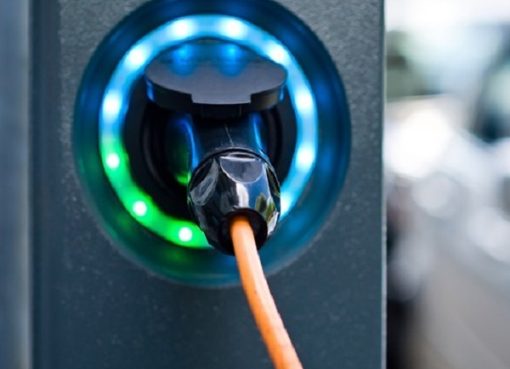The rapidly emerging artificial intelligence agenda at the World Intellectual Property Organisation needs attention from African policy makers.
The World Intellectual Property Organisation is driving a rapid policy process to set the international agenda on artificial intelligence and intellectual property, with debates centring on developed countries’ interests. The outcome is likely to constrain the policy space for Africa, where it is not receiving sufficient attention — but African countries have the chance to unite on policy positions through the intellectual property chapter of the African Continental Free Trade Agreement.
The rapidly emerging artificial intelligence (AI) agenda at the World Intellectual Property Organisation (WIPO) needs attention from African policymakers. Global rules on intellectual property aspects of AI will determine who develops AI technologies as well as who benefits from them. WIPO has engaged in a process that it calls “leading the conversation” on AI and intellectual property.
WIPO officially began this process in September 2019 with a session in Geneva. In response to its December 2019 request for public comment on a draft issues paper, it received more than 250 submissions, the vast majority from the global North. In its response, one of the very few from Africa, Research ICT Africa (RIA) pointed out that the issues paper pays little attention to development.
In February 2020, WIPO, with the US Copyright Office, held a conference on AI and intellectual property (IP) in Washington DC — followed by a revised issues paper in May 2020. WIPO convened another session, held online due to the Covid-19 pandemic, in July 2020 and yet another in early November 2020. To anyone familiar with the slow pace of policy processes at WIPO, such as the decades-long struggle to put in place exceptions for visually impaired persons, the speed of this process is unusual. Not since the rapid creation of the WIPO Copyright Treaty has an issue been treated with such alacrity.
African countries that fail to quickly develop clear policy positions on AI and IP in time to engage in the process may find themselves unable to reset an agenda formulated without them. Fast-tracking work on AI and IP enables WIPO to demonstrate its relevance as an international organisation while responding to well-organised constituencies in developed countries.
As pointed out by Canada in its response to the request for public comment, the discussion thus far has not been situated in the context of the overall impact of AI on economies and societies across the globe. Canada proposed adding important additional questions, including: How can IP policy ensure that the benefits of this new technology are shared broadly? What aspects of IP policy will be key to ensure a proper balance between encouraging investment in AI and the dissemination of, and access to, this technology?
WIPO processes have not yet included these broader questions.
The policy debate is focused on the interests of those likely to benefit from awarding rights for AI products, and not on measures that might close the AI technology gap for Africa. Exceptions for training AI systems and insisting that authors and inventors must be human are the immediate priorities for Africa.
There are a number of different connections between AI and intellectual property. AI technologies are being developed to process vast data sets quickly and efficiently. This enables AI to accomplish tasks too complex for a single human or even a group, for example, to rapidly manage electrical power demand and flows over a smart grid.
But AI software can also be developed to mimic human action. An AI application or machine can be trained with thousands of tunes to produce a sound recording that sounds more like human-made music than randomly generated noise. AI software can also generate text, photographs and video when trained with a set of examples produced by humans.
This raises two copyright issues: whether use in training AI requires copyright permission and whether the AI outputs are copyrighted.
Does copyright require permission from copyright holders when human creative work has been used to train AI? Unlike traditional data sets, such as weather data, human creations such as music are often subject to copyright. Obtaining copyright clearance for training data would be impossible for all but the most well-resourced corporations. Intermediaries with large libraries of copyright works, especially those based in Europe, are intent on extracting revenue from highly profitable corporations leading AI research.
That arrangement, though, would raise barriers preventing African countries from developing their own AI capabilities. An open-ended copyright exception would permit use not only for training purposes, but other uses that would become necessary as AI technology develops. African countries could agree to such an exception for Africa in the intellectual property chapter of the African Continental Free Trade Agreement (AfCTA).
Efforts to recognise AI as authors and investors can undercut the livelihoods of African artists. The media produced by AI resemble human creativity, but lack human communication. Despite the lack of authors and authorial sensibility, some AI developers claim that these products should be awarded copyright. With AI able to ceaselessly generate look-alike products that will further undercut the market value of human creativity, African artists and musicians will find it harder to make a living.
Similar efforts to award patents to AI outputs could exacerbate existing global imbalances in intellectual property. AI can generate new patent applications far quicker and more exhaustively than any human. But the contribution to the process by the developers of the AI may be too far from the result for them to be regarded as inventors. However, if the AI software — despite not having a separate legal personality — is regarded as the inventor, and the developers own the AI, they can accumulate large patent portfolios.
This possibility has resulted in forum shopping for recognition of AI as inventors. Since the US Patent and Trademark Office has rejected AI as an inventor, as have the UK Patent Office and the European Patent Office, AI developers are approaching courts instead. Although a court in the United Kingdom has also rejected AI as an inventor, attempts in other forums are anticipated.
Before this development, most patents granted in African countries were awarded to foreign corporations. Even in South Africa, which has a higher local patenting rate than most other African countries, only 10% of patents are awarded to South Africans. If African countries are required to award patents for AI-generated claims, the trend of low local patenting rates will be exacerbated.
AI may prove useful to development. It may help identify potential candidate molecules to treat neglected diseases such as malaria. Through managing a smart continental electricity grid, it may enable African countries to rely on next-generation renewable energy sources. But the policy process underway at WIPO, driven by debates in developed countries, is not oriented towards ensuring that Africa benefits from AI.
African countries need greater expertise in IP and AI, but should not wait on the development of expertise to pay attention to processes at WIPO. Intellectual property, especially international intellectual property law, is notoriously complicated, demanding considerable expertise. AI is also complicated and similarly dominated by experts. The intersection of these technocratic worlds may seem remote from the day-to-day challenges of African policymakers.
When the World Trade Organisation Agreement on Trade-Related Aspects of Intellectual Property Rights Agreement (WTO-TRIPS) was negotiated, most developing countries lacked expertise in international intellectual property law and as a result, did not grasp the significance of flexible intellectual property for participation in the knowledge economy. They have subsequently found their efforts to develop knowledge-based industries constrained by the uniform regime imposed by WTO-TRIPS. This dynamic is likely to be repeated if developing countries, especially African countries, do not redefine the AI agenda at WIPO.
The policy debate is focused on the interests of those likely to benefit from awarding rights for AI products, and not on measures that might close the AI technology gap for Africa. Exceptions for training AI systems and insisting that authors and inventors must be human are the immediate priorities for Africa.
African countries can work together to establish development-friendly rules, through the African Group at WIPO, but also by agreeing on these rules in the intellectual property chapter of AfCTA. DM/MC
Source: dailymaverick










